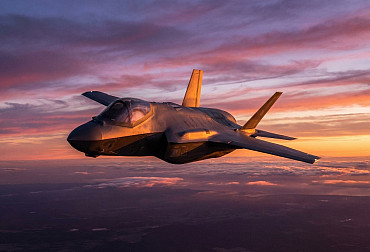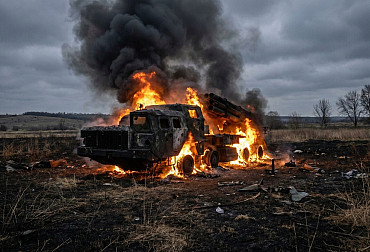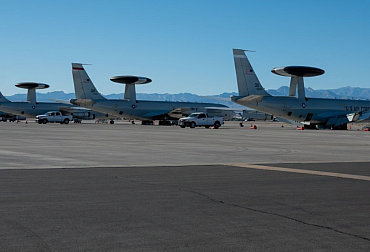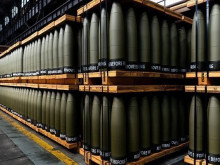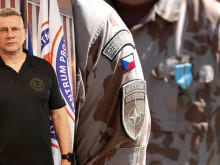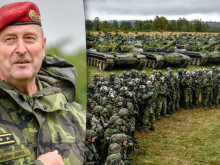Up to 90 % of Czech defence technology products are exported despite a lot of complications that Czech exporters have to face
The Czech Republic is one of the most export-oriented countries in the world and the defence and security industry is no exception. Up to 90 % of the Czech defence technology products are exported, despite a lot of complications that Czech exporters face, says Jiří Hynek, President of the Defence and Security Industry Association of the Czech Republic (DSIA).
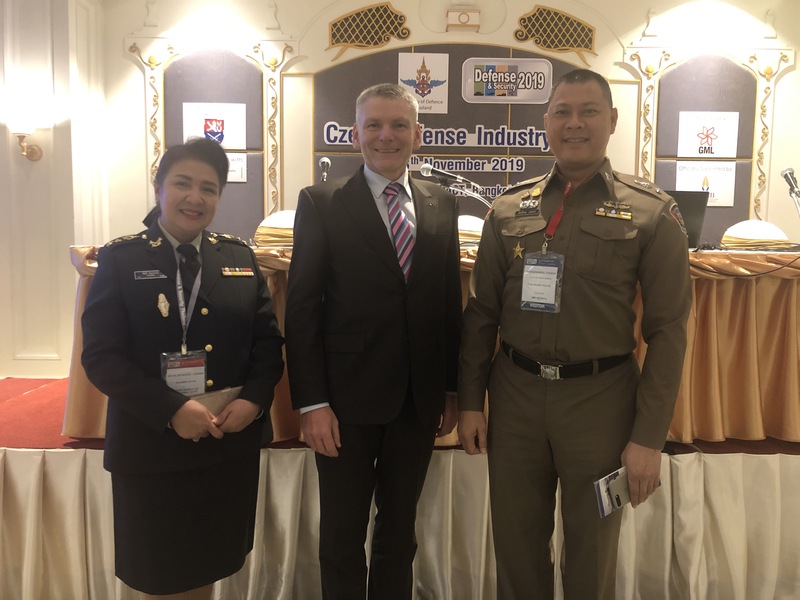
Picture: President DSIA (Defence and Security Industry Association of the Czech Republic) with customers| DSIA
The exports represent more than 80 % of the gross domestic product of the Czech Republic. What is the situation like for the defence and security industry?
More than 90 % of Czech defence and security technology products are directed to foreign markets, which is due to several factors. We have a rather small army, even in terms of the size of our country. If we consider also the vast defence and security industry, it is understandable that the large majority of domestic defence and security production goes abroad. But supplies to the Czech Armed Forces remain important for us, because we can hardly succeed abroad without a domestic reference. The interest in Czech products abroad is significant, among other things because we are able to produce high quality products at relatively affordable prices. Moreover, unlike multinational corporations, we are able to customize our products. Last but not least, the Czech Republic does not have the ambition to gain political influence in the customer’s country through the supply of military material, as is the case with many world powers. We are quite successful in exports and our exports are growing. Nevertheless, Czech exporters are faced with a number of restrictions and difficulties accompanying their trade.
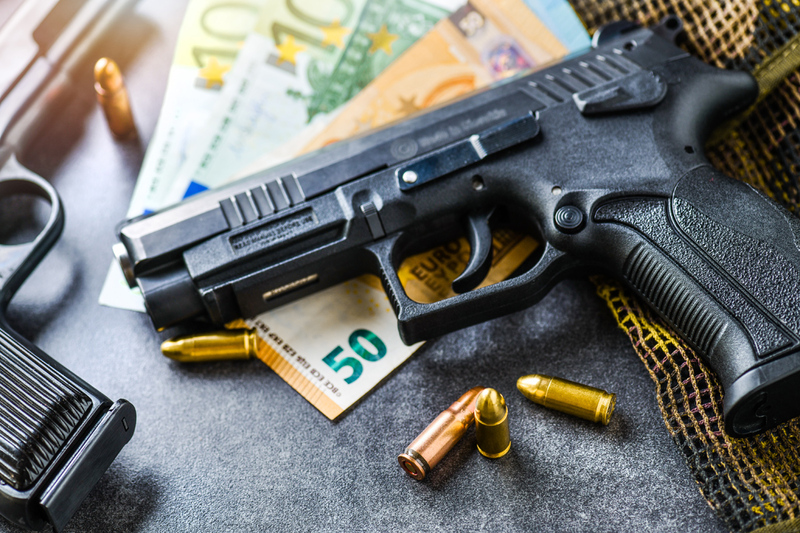
Picture: More than 90 % of Czech defence and security technology products are directed to foreign markets (illustrative photo) | Shutterstock
Would you give examples of some specific restrictions that you have in mind?
First, it is necessary to realize what can be hidden under the term military material. Because the trade with it is strongly regulated by the state. It is no surprise that there are military weapons. But it can also include a variety of components, machines or sending out experts. Let me illustrate it with a story. One Czech company received a contract for the production of metal structures for aircraft power distribution panels for a French partner. They were basically metal shelves. In France, electronics were added and the resulting product went to Germany to Airbus. The moment the order for the Airbus A400M came, the metal racks became military material. In France, they were somewhat shocked. They import military material from the Czech Republic, equip it with electronics and then export it as non-military. That is beyond me. Although there is a common list of military equipment valid within the European Union, each country interprets it a little differently. It is easy to get into a conflicting situation with the law because of the complicated definition: And because the unauthorized trade with military equipment is a crime with a fairly high rate, the consequences can be drastic. The recent judgement regarding the export of a rocket model for a museum in the US is an example of how far the absurdity can go. And the judge's statement: “The thistle will remain a thistle, even if it looks like a rose a hundred times” has a witty paraphrase in professional circles today.
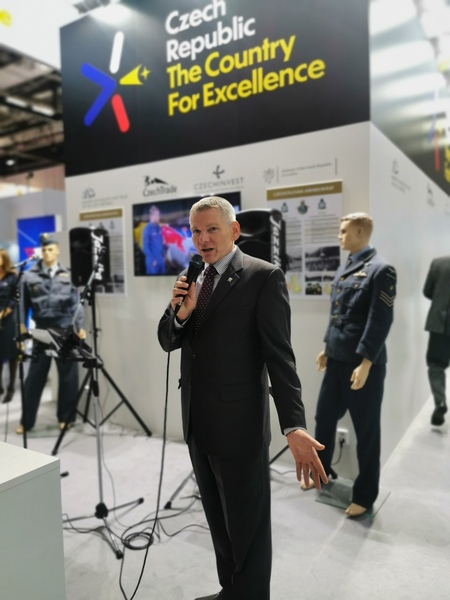
Picture: Jiří Hynek, President of the DSIA at the DSEI trade fair in London | DSIA
Are you saying that each EU country determines differently what is and what is not military material?
Some products are military material without a doubt. No one will question whether a machine gun or a tank belong in the category. But the interpretations may vary for example for trucks. In our country, it is enough for the Tatra truck to be able to inflate the tires while driving, and then the same export rules apply as if it were a surface-to-air missile. In Germany, a truck is considered a military material only when it is armoured. And so we can find dozens of variations between countries not only for the final products, but mainly for components and spare parts. Interestingly, some of the non-governmental organizations, who behave like self-proclaimed guards of military stores, were upset about the export of the Tatra trucks to Saudi Arabia because of the "Czech arms export". But the hundreds of off-road Toyotas that the Islamic State fighters drove did not seem to be a problem for them. Because they do not appear in the statistics of trade with military material.
What are some other barriers for trade?
Trade with military equipment is strictly controlled by the state, which is right and understandable. If only there was not so much bureaucracy. In order to be able to trade with military material at all, you must obtain permission from the authorities to do so. Only then you can start any business negotiations. In the military technology business, customer confidence in you as a potential supplier is paramount. And it takes a long time to get it. You can have a good contract, a good product, a good price, but if the customer doesn't trust you, you won't sell. This is because this trade does not deal with ordinary consumer goods, but with technologies that must be reliable and work for many years. The more complex the technology, the longer the whole round of negotiations takes. In most cases, there is also the requirement to be met to involve the local industry in maintenance, assembly or even the production of certain components. Few armies are willing to be fully dependent on a foreign country. It usually takes five to ten years to get a new customer. Once you have a customer and sign a contract with them, there comes the trouble with the export license.
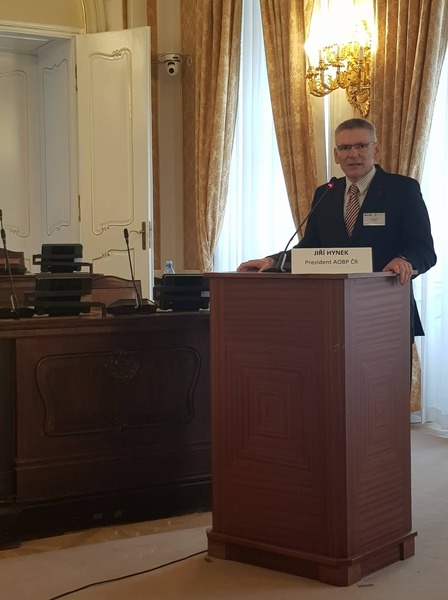
Picture: Jiří Hynek, President of the DSIA hosts a professional conference in the Chamber of Deputies of the Parliament of the Czech Republic | DSIA
What is that about?
You must obtain an export license for each specific export. You are requesting the license at the License Administration of the Ministry of Industry and Trade. But it inquires other ministries, the Ministry of Foreign Affairs and the Ministry of Interior Affairs, where the stances of intelligence services are concentrated. For some products it is necessary to obtain the approval of the Ministry of Defence. As soon as one of the ministries concerned decides not to give permission to the trade, then the trade will not take place.
Does that happen?
Of course. When this happens, the disapproval is on the part of the Ministry of Foreign Affairs. I don’t remember it ever happening with the Ministry of the interior affairs or Ministry of defence. The Ministry of Foreign Affairs assesses the trade from a number of perspectives. Czech exporters often feel that the ministers are too anxious in their attitudes. The worst are the 'could' statements. If the permission to the trade is not granted, it will not only thwart years of work, but mainly it will lead to opening the market for our foreign competition. One of the reasons why the export of military equipment from China is growing every year is the cautious licensing policy of many EU countries. China, Russia or the US will be happy to fill the gap in the market.
But certainly there is a number of favourable statements, because Czech exports are growing. So if a Czech manufacturer gets an export license, then nothing prevents him from exporting?
Well, I have to prove you wrong. The institutions of European Union are dealing with all sorts of trifles, but they are tacitly overlooking the discrimination against countries that do not have direct access to the sea. Which is our problem as well. We have to transport the goods to the customer and there is not much to export without loading the goods in the port. And to do this, we need to obtain the so-called transit license of the country through which we transport the goods. Quite often it happens that a given country does not grant us the license and we will lose the contract, if not the whole market position. We estimate that, because of this discrimination, we lose 20 % of our annual trade and the state thus loses the payments to the state budget. But this is only a brief overview, because the issue of transit licenses would need a separate interview on its own.
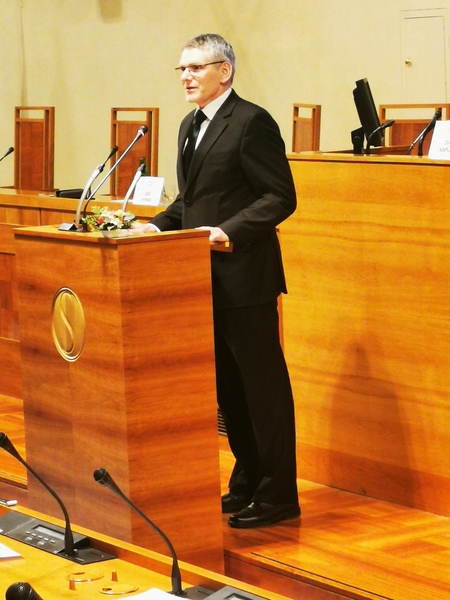
Picture: President of the DSIA speaks at the Security Conference in the Senate of the Parliament of the Czech Republic | DSIA
How would you respond to the claim that we should not export to some countries due to their violation of human rights, war crimes or violations of international law?
Here I would first of all like to draw your attention to the fact that in international relations the assumption "either human rights or trade" is not entirely valid. Look at the world's great powers. Emmanuel Macron goes to China to negotiate giant contracts for French companies, Chinese President Xi Jinping is a guest in every western metropolis. Of course, the violations of human rights in Tibet, Uyghurs or elsewhere in China or any other country in the world are bad and deplorable. But we will not achieve any rectification by political gestures, and by eliminating ourselves from the competition we will harm only ourselves. It is naive to think that if we do not deliver some goods to these countries, they will not get it elsewhere. Not delivering military material has never saved peace. It is often the other way around and a well-meaning peace initiative does not lead to peace but to large massacres. Our Association has the following slogan for a reason: “We help to build a safe world.” For example, if we delivered weapons to the legitimate army in Mali in time, there might not have been such problems with the Islamists in the north of the country. And how many lives we could have saved. Nothing is just black and white although a lot of people try to paint it as such.












